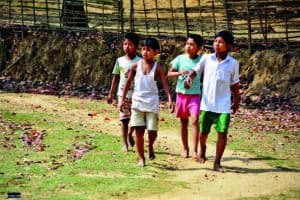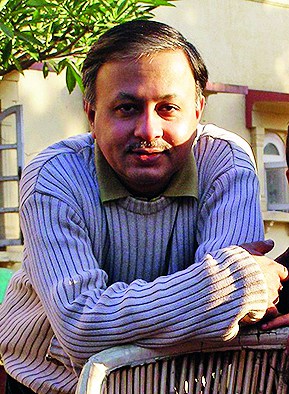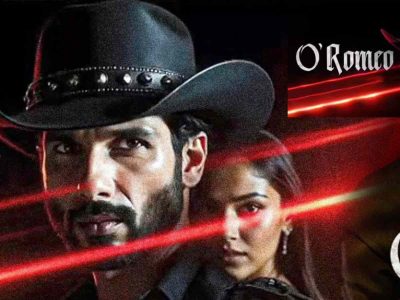Utpal Borpujari is a bold film-maker who chose to take up the theme of witch-hunting in a remote Assamese village and is now getting the National Award for Best Assamese film
Utpal Borpujari was a well-known media critic from Assam before he got into film direction. An MTech in Applied Geology from IIT-Roorkee, he won the Swarna Kamal for Best Film Critic at the 50th National Film Awards 2003. As a professional journalist, apart from cinema, he writes extensively on politics, society, culture and literature.
Over the last seven years, Borpujari made several acclaimed documentary films such as Mayong, Myth/Reality, Songs of the Blue Hills, Soccer Queens of Rani and Memories of a Forgotten War, among others.
He has served in international and national film juries and curated films during the International Film Festivals of India (IFFI) in Goa. Ishu, his debut fiction feature, was screened at the Human Rights film festival organised by CHRI in Delhi some time ago.
Ishu, based on a 10-year-old boy, was given an award at the 65th National Award ceremony held on May 3 at Vigyan Bhawan, New Delhi. This year’s award chairperson was none other than famous film-director Shekhar Kapur. The 10-member panel consisted of members from different regions.
The story is based in a tribal village of Assam. Ishu (Ishwar Prasad) Rabha is a school kid, happy playing with his puppy and pampered by his grandparents. One day, her favourite aunt (Ambika Jethi) is declared a witch by illiterate villagers due to a political conspiracy. They burn her house and harass her. She goes missing and hides in the forest.
In the meantime, villagers eye her land but they suffer as her herbal medicines used to cure people of diseases.
Borpujari told Patriot he was fortunate to have award-winning Sreekar Prasad and Sumon Dowerah as cinematographers. The latter had worked with famous film-maker Jahnu Baruah. Musician Anurag Saikia is also a national awardee and has given music for hit movies like Dangal and Ai Dil Hai Mushkil. His sound designer Pritam Dutta worked with technologists like Rasool Kutty.
Ths interview was taken before the National Award presentation.
How did you select the subject?
When I decided to make a feature film, I was keen on starting off with a children’s film because in India there are not many children’s films made till now. My idea was to make my first feature film in my mother tongue. Hence, I chose this wonderful story written by popular Assamese author Manikuntala Bhattacharjya. The story, also titled Ishu, attracted me because of its depiction of how a child, through his or her innocence and simplicity, can make a change in the immediate society around. Also, the story has a backdrop of the big social problem of Assam, the so-called ‘witch hunting’, which was another reason.

Is it a true story? Does this social problem still exist?
It is not a true story, but such sad incidents are happening in Assam even now. The state government, social organisations and many others are trying to end this social evil. Unfortunately, superstition of people is exploited by unscrupulous elements to perpetuate this problem.
How long did it take you to make this movie? Also, tell us about its locations.
The film took around one year to finish. However, before that the scripting took nearly two years as I wanted to make it as realistic as possible and thus had to do a lot of research and also visit interior areas of Assam. The film was shot in Gaia area of Goalpara district in Lower Assam, bordering Meghalaya and West Bengal.
Have you taken new actors or actresses?
The child actor, Kapil Garo, was chosen after shortlisting over 200 kids. I made a conscious decision not to have auditions for children. Children are the best actors as they act natural. It’s best to encourage them to perform. I chose Kapil after visiting his home at Barobhogiya village, west of Guwahati and speaking to him for about two hours. It was an instinctive choice. He is shy and simple, and became friendly after the initial hesitation. Also, it helped that he comes from a village as my protagonist is a village boy and so whoever played him would have to look natural in that setting.
Among the other actors, Tonthoinghambi Leishangthem Devi (who played Ambika) is a National Award winning actress from Manipur, and Bishnu Kharghoria (who played the Bej or the village quack) is a two times National Award winning actor. Chetana Das (Bhadreswari) and Pratibha Chaudhuri (grandmother) are veteran actresses of Assamese film, theatre and TV. Most of the other actors are from theatre and have acted in a film for the first time.
How did Kapil behave on the sets?
Kapil is a very spontaneous actor, and though he never acted before Ishu, except for a couple of school plays, he was totally oblivious of the presence of the camera as well as other people on the sets. He performed as I instructed him and is a hard working child.
Where have you shown this film?
Actually, after my film travelled to a few other festivals, the CHRI Film Festival wanted to screen it and contacted my producers, the Children’s Film Society, India (CFSI). It was the second screening in Delhi after the third Smile International Film Festival for Children and Youth (SIFFCY) in December last.
Have you shown this film to the officials in Assam? Or any minister so that they can take some step to handle this social evil?
No, I have not shown it specifically to government officials, though many officials have seen it during its screenings in Assam as part of the general audience.
How did you feel when it was announced that Ishu would be getting the National Award?
It is great news that my whole team’s work is recognised at the International level. And that North East film directors are making a mark in the national arena.




